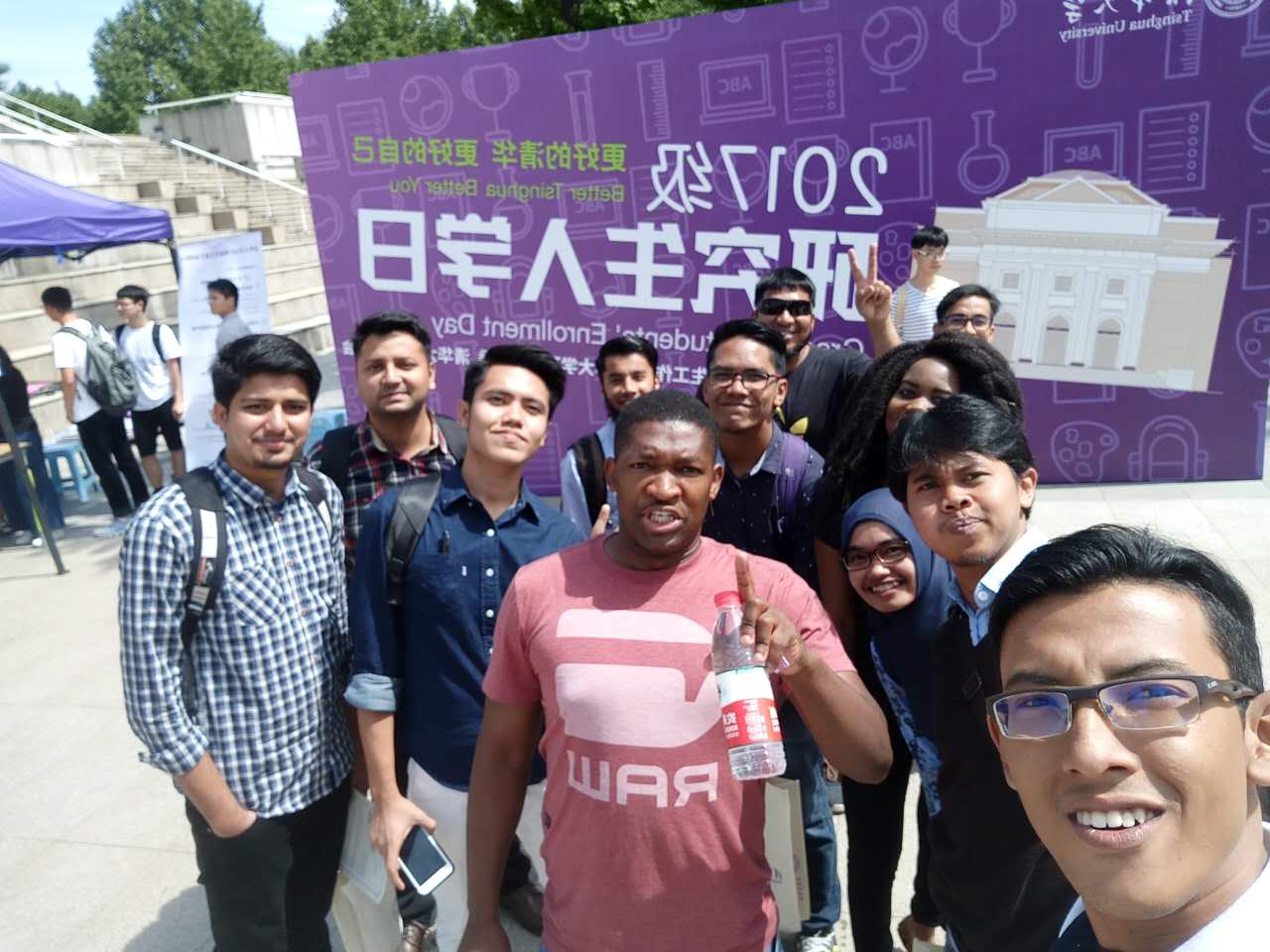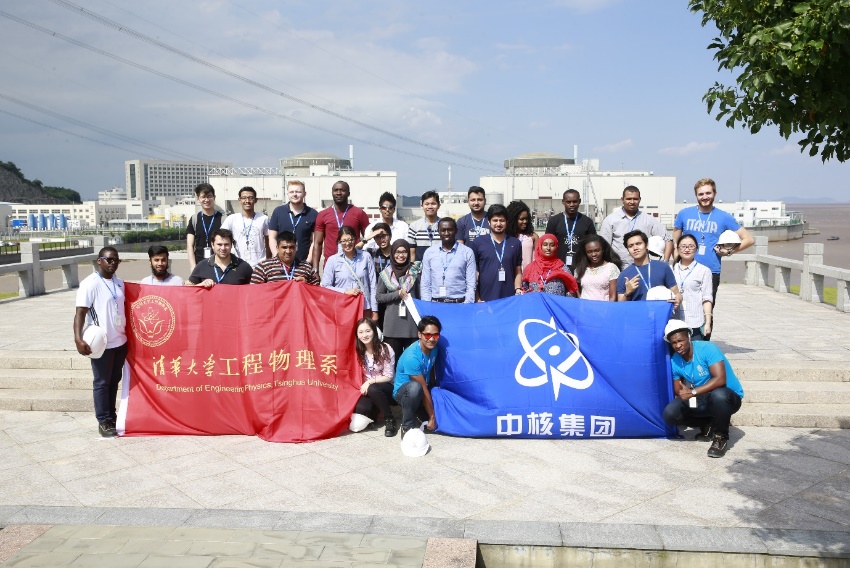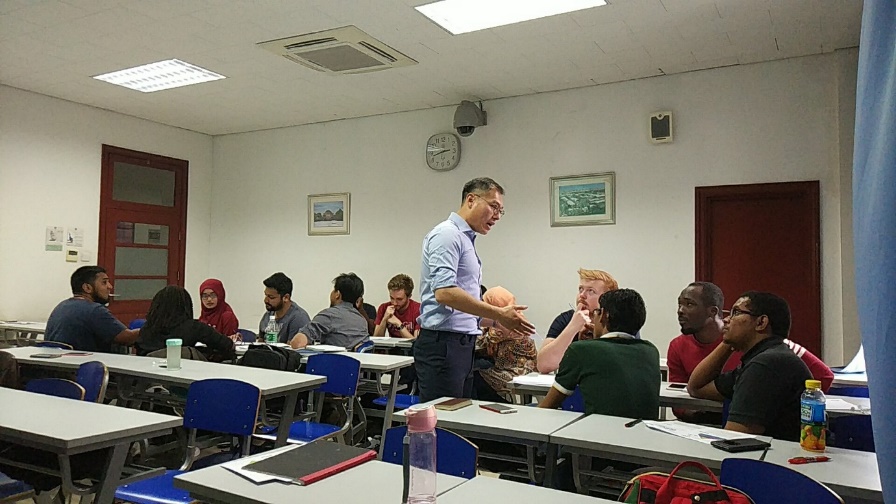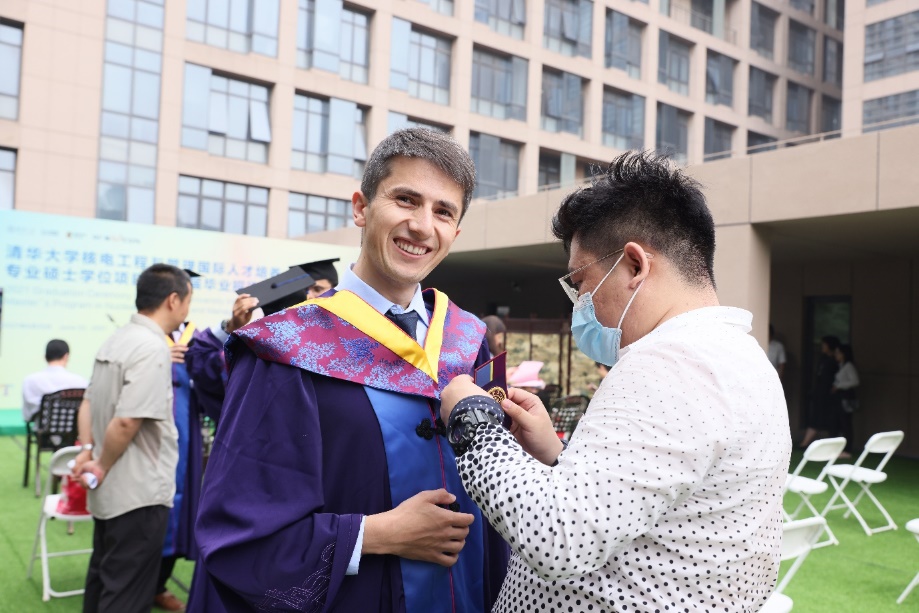Nowadays, nuclear energy plays an indispensable role as an efficient kind of clean energy source in the world's attempts to reduce carbon emissions and protect the atmospheric environment. China proposed a national strategy in 2013 to share its new technology and achievements in nuclear engineering with other countries, especially developing countries. In line with this policy, Tsinghua University started the program of the International Master’s Program in Nuclear Engineering and Management (TUNEM) in 2017.

The TUNEM program is a two-year professional degree program with the aim of providing high-end talents who are technically savvy, versed in management, and have a global perspective on the nuclear industry. It further aims to assist in cooperation between countries developing the necessary talent and skills required in human resources for further nuclear development in host countries. “We want to introduce all aspects of the industry to them as much as possible, expand their knowledge, and let students have a global view. This overall view enables them to have an overall grasp when participating in actual nuclear power projects,” said Tao Tao, an industry mentor who is a senior engineer at China Nuclear Power Engineering with 35 years of experience in nuclear power project management.
China Nation Nuclear Corporation (CNNC) is one of the main Chinese state-owned companies which has provided solid support to TUNEM. The others are State Power Investment Corporation (SPIC) and China General Nuclear Power Group (CGN). With their support, the program’s uniqueness lies in the close partnership between the university and major nuclear power groups in China.

“Not only one, but more than three companies, mainly CGN, CNNC, SPIC, their subsidiaries, and other related companies as well,” remarked Phatham Loahavilai, an alumnus who joined the TUNEM program in 2020.
Each student is co-supervised by two instructors: an academic supervisor from the university and a high-level senior engineer acting as an industry mentor. The academic supervisor tends to focus more on helping students develop their academic skills, while the industry mentor focuses on assisting students to gain an overall grasp of the whole nuclear industry.
“We can work with mentors that are experts in the fields and are aligned with our field of study,” noted Zheng Hao Leong, a second-year student from Malaysia. He applied for TUNEM initially for its internship and practical opportunities. “I was told that the TUNEM program has been in long-term collaborative relationships with scientific R&D institutions and corporations, so I thought there might be many opportunities for me to discover the nuclear industry and to do practical apprenticeships.”
During their second academic year, students can go onsite to learn about the facilities and even manipulate them in simulation rooms. “In the first semester of the second academic year, students will go to three major nuclear power groups for collective internships of about three months. Students have been to many places for visits, for example, manufacturing plants, the radiation prevention research institute, and nuclear power plants in several provinces,” said Tao Tao.
During the pandemic, the implementation of the internship was greatly hampered. “We have found some specific ways [to overcome the obstacles], which basically are the one-to-one online internship,” said Professor Yu, who was one of the initial organizers of the TUNEM program. “One-to-one means one mentor to one student, and the mentor would introduce the on-site process and facilities based on the actual scene and answer the student questions.” Though it could take a pretty long time to complete the internship, the feedback from the students was ultimately good.
“There will be another two months of one-to-one individual internships with industry mentors. A special teaching plan will be arranged for each student, which is generally eight one-to-one lessons,” added Tao Tao. Moreover, students can directly participate in projects under construction by the companies.
The program also offers specialized and comprehensive courses for students such as Nuclear Energy Science and Engineering, Radiation and Environmental Protection, and Nuclear Engineering Management.
A great deal of writing is required of the students, including a focus on a master’s thesis, which is a requirement for everyone. The two instructors guide students throughout the whole process. “Both my supervisor and mentor showed how deeply they were concerned about the progress of my thesis,” said Zhenghao Leong. “Since we still can’t meet face-to-face, they would be like spamming my mailbox with lots of pieces of literature and keep asking about the progress and whether there is any problem I encountered that I couldn’t handle by myself.”
Mohammed was a student in the program who worked in the power dispatching center of the Ministry of Energy and Minerals of Sudan. His graduation thesis was inspired by the nuclear power programs in Hainan and Zhangzhou, and was written in combination with the actual situation in Sudan. After polishing, it was published at the International Conference of the IEEE International Electrotechnical Organization.
Their learning journey proves valuable outside the classroom as well. During the first semester, students might have the opportunity to attend a few major conferences and forums where prestigious experts in the nuclear and energy industry from all over the world who shared their opinions and experiences. “It was a fruitful session to see people from different countries and different reputable institutions like MIT, Harvard, Oxford, NUS and so on, exchanging their ideas in advancing energy, sharing views about environmental protection,” said Zheng Hao Leong.
“The students of the TUNEM program, they have very wide, different backgrounds. We have Christians, we have Muslims. We have students from different countries, different religions, and also different ages. Some of them are just freshmen from the university, and others may be mid-career professional who are over 40 years old,” explained Professor Yu. Though it is an English language program, TUNEM specially designs Chinese language and culture courses, in order to help international students understand and experience the vast and rich Chinese culture. It also provides a wide range of cultural exchange activities. Phatham Loahavilai is one of the students who benefits from those offerings. He mentioned some of the cultural courses that introduce Chinese history and how they help international students like him adjust to the Chinese culture and enjoy a richer and fuller life in China.

Professor Yu explained there are two ways to apply for the program: it admits individual applicants and also accepts applicants nominated by foreign governments or companies. As a result, some of the applicants might be executives of overseas nuclear industry companies, while others might be fresh graduates in their early twenties. Students who are admitted to the program will receive a Chinese Government Scholarship (CGS) which covers tuition fees, on-campus accommodation, a monthly stipend, and medical insurance.
Many of the students are executives of overseas nuclear industry companies, so the students in this program have a wide range of ages and diverse backgrounds.
The program has been opening doors for those with a passion and drive to be involved in the development of nuclear engineering, regardless of their ages or professional backgrounds. So, if you have an interest in the nuclear energy field, check the application website and have a try!

Details of the program and application guide are available at:
https://www.ep.tsinghua.edu.cn/info/1131/3035.htm
You can apply via the link below:
http://gradadmission.tsinghua.edu.cn/f/login
Student reporters:
Yvette(Xie Xinyao)
Solaire(He Wanru)
Amanda Wardhani
Autin(He Haiyang)

